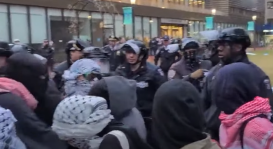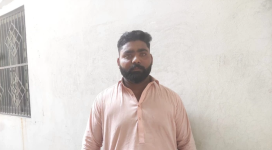The People’s Republic of China will ordain a second Bishop, without Vatican approval, despite warnings that such move would endanger efforts to reestablish relations, after the Communist Party severed ties with the Vatican in 1951.
Li Xinhong, a priest from the official church in central Anhui province, is scheduled to be consecrated at a ceremony before hundreds of people on Wednesday.
The decision inflamed Sino-Vatican relations, which was already strained after the consecration of Ma Yinglin as Bishop of Kunming, in southwestern Yunnan province.
The Vatican’s request for Ma’s consecration to be postponed was met with Beijing’s demand that the Vatican not interfere with China’s internal affairs.
Cardinal Joseph Zen, elevated by Pope Benedict in March, called for suspension of Sino-Vatican diplomatic negotiations, referring to China’s move as a "very serious major setback."
The Hong Kong cardinal, a strong critic of the state-controlled Catholic churches, accused the Chinese Catholic Patriotic Association of using "pressure, threats and, it seems, also deceit" to consecrate Ma, destroying "the atmosphere of mutual trust so necessary for successful dialogue," as quoted by the Associated Press (AP).
Zen said that the Vatican would react strongly, but did not elaborate on what action it would take.
In 2000, diplomatic negotiations were delayed for five years after Beijing consecrate five bishops.
Some experts believe that China’s decision may have been caused by the Patriotic Association’s desire to keep its power, while others pointed out that the move might be a bargaining chip for the leadership to bring to the negotiations.
"If they appointed Ma Yinglin along, then that could be the case, but the fact they’re also appointing Liu Xinhong shows that the decision must have come from high up in Beijing," said Beatrice Leung, an expert on China-Vatican relations, to AP.
"This shows there are problems in their negotiations. There's no progress. They want to test the Vatican's bottom line. They're trying to tell the Vatican: I still have the authority to appoint bishops."
The state-controlled churches have about four million worshippers, according to government figures. The number of illegal unregistered, or underground, church is around 10 million, says the Vatican.
Catholic worshiping in unregistered churches retained their allegiance to the Holy See, while worshippers in official churches tended to see the Pope only as a spiritual guide and not the ultimate authority.
Nonetheless, the consecration of both Bishops may have divided Catholics in China’s official churches.
According to an AP report, an unidentified man working at the official church office in Anhui said that only those carrying "special tickets" were allowed to attend Liu’s consecration.
"They are afraid Catholics who feel strongly will protest at the ceremony because the ordination has not been approved by the Vatican," he said.







